Final Fantasy 7 Remake Review

Official Score
Overall - 90%
90%
Much like its predecessor, Final Fantasy 7 Remake is far from perfect. Its linear design and difficulty spikes may be off-putting for some, but stick through the rough bits and there's another incredible story and wonderful world waiting.
One of the most eagerly anticipated RPG releases of our time sees Square Enix revive a story once told over 20 years ago. The Final Fantasy 7 Remake retells a story beloved by many and appreciated by all. A dedicated fan base, a franchise that has helped define the RPG genre we know today, is it possible for this title to meet the expectations of fans?
Final Fantasy 7 Remake Review
[line style=’solid’ top=’10’ bottom=’10’ width=’100%’ height=’1′ color=’blue’]Approaching the Final Fantasy 7 Remake is a unique challenge. Never before have I reviewed a game that’s story is already written, already concluded. Yet, for many, this release is likely the first encounter they’ve ever had with the characters and story known by so many for so long. The original game’s journey is done; it’s set in stone, a relic of the past. However, the Final Fantasy 7 Remake is not a simple retelling of the same story; it’s a complete re-imagination from the creative minds using the wonders of modern gaming technology to offer more than a simple second take.
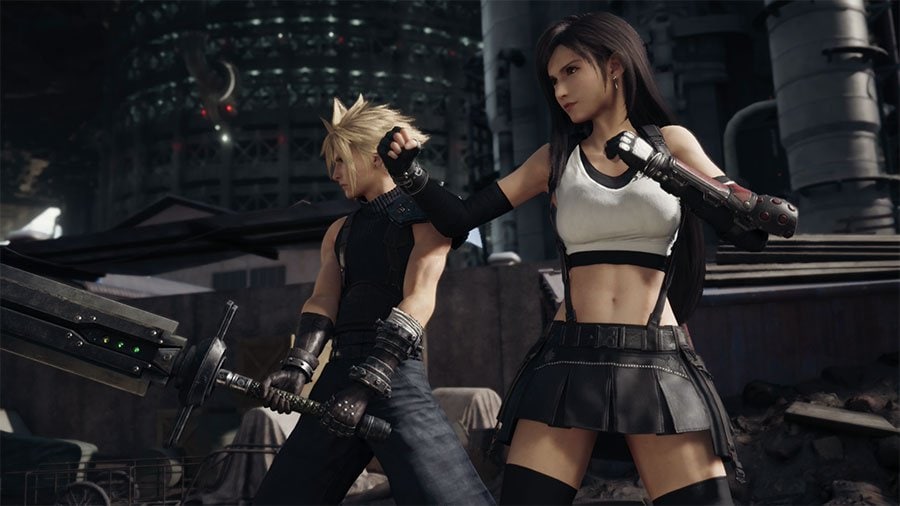
The core aspects of the narrative remain familiar as protagonist Cloud joins forces with eco-terrorist group Avalanche in an effort to take down the infamous Shinra – a corporation of greed that will stop at nothing to drain Mako from the Earth to fuel its profits. It’s that core story that made the original game so strong, and one that continues with the remake. However, it’s not afraid to mix things up. There are some huge changes to the overarching story; they may not be for everyone, but I thoroughly enjoyed leaving the game with a fresh notebook of questions.
Biggs, Wedge, Jessie, Barret, Tifa, Aerith – there’s a long list of standout characters from the original game, but whether it be due to the technical limitations of the time or just the original games scope, many characters didn’t get their time to shine. The Final Fantasy 7 Remake is based entirely within the confines of Midgar, a town build on Mako energy that struggles with a clear divide of have and have-nots. Compiling the first episode of the new saga into Midgar leaves out some key aspects, but in terms of story, it shines through.
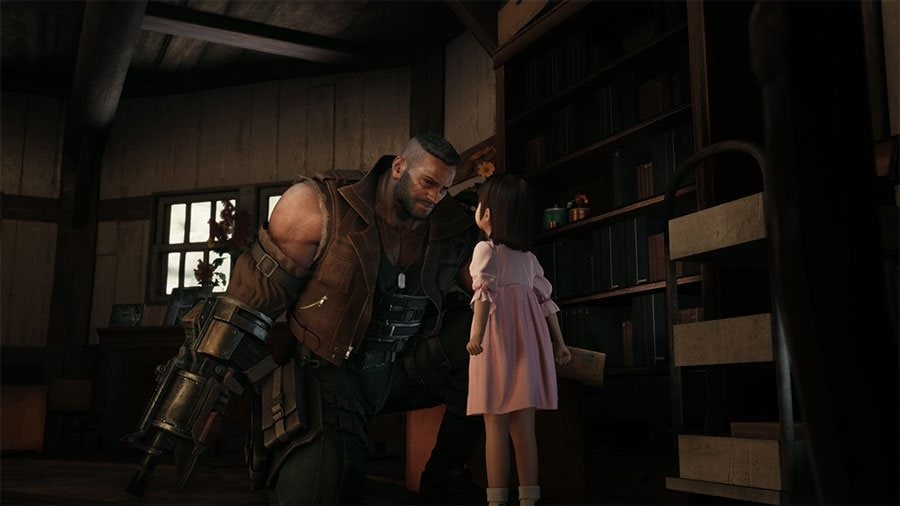
Characters that were simple pass-overs from the original come to the forefront with a burst of vibrant personality and depth. This applies to the main characters of Avalanche, previously minor characters that take a more dominant role, or new characters entirely. A combination of brilliant graphics, fantastic animations, and industry-leading voiceover work deliver a memorable cast from start to finish. I found myself chuckling along to some of Barret’s one-liners, the hot-headed yet warmhearted leader of Avalanche.
I had little doubt that the Final Fantasy 7 Remake would deliver on the narrative front, with my biggest concerns being that of the gameplay. My biggest problem with this title is the linearity of the level design. So much of the game is just one big corridor after another, with minor paths branching off to hide a chest or collectible. I would often want to turn around and explore an area, only for the game to remind me of my current goal and set me back on track.
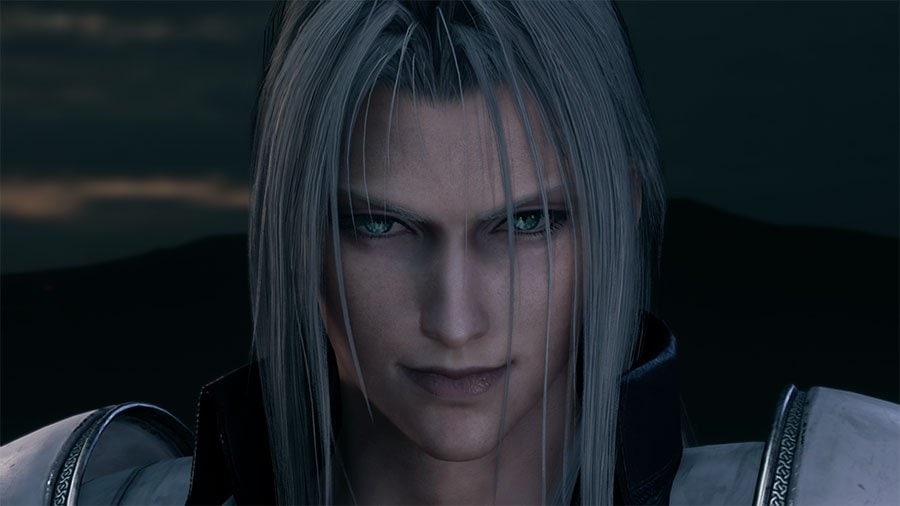
It’s a problem throughout much of the game, and one I’m sure will disappoint a lot of players. However, it’s not without merit. There are some brief segments where areas become more open and side quests become unlocked, which makes the monotony more bearable. However, it’s the later stages of the game that save the experience, swinging in like a wrecking ball of redemption. In the final chapters, the Midgar areas you’ve explored become more accessible, allowing you to return to find missed items or complete old quests. It’s a refreshing moment that offers the final 5-10 hours of the game as a wave of enjoyment. Up until that point, the story carries it well, but the A to B nature of much of the game will leave a sour taste for some.
One of the more controversial design choices surrounding the remake was the removal of the old-school, turn-based combat system – a system that relied heavily on planning tactics and strategies. In its place is a more modern, real-time combat system that combines hack ‘n’ slash foundations with a strategic twist. The combat revolves around the ATB Gauge, a gauge that builds over time with each basic attack a character lands. Once full, the ATB Gauge can be spent to cast magical spells, user powerful abilities, summon god-like creatures, or use items.
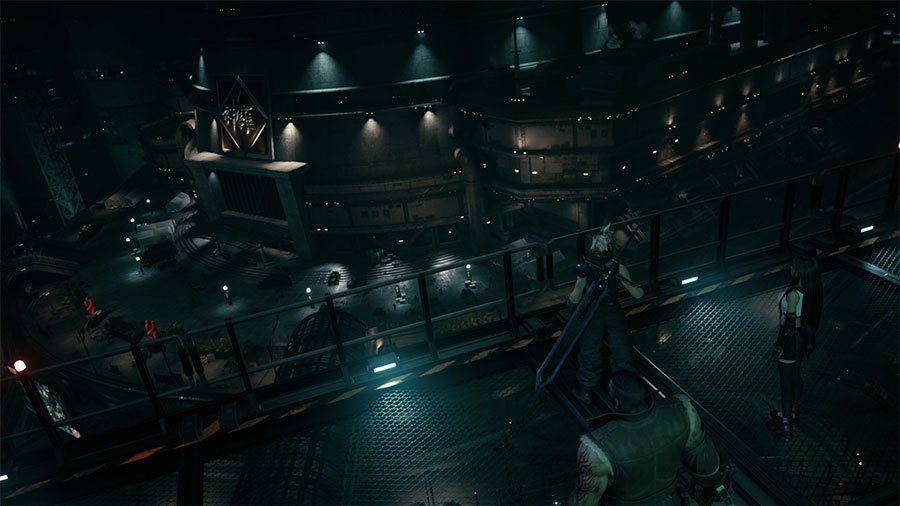
While the real-time aspects of the combat may be off-putting for fans of the old school, it blends really well with the ATB system. Navigating through the skills and abilities in-combat slows time to a crawl, giving you ample time to manage your ATB use and choose appropriate abilities. Do you want to launch that next big sword attack to finish the enemy off, or maybe save that last gauge for an emergency healing spell? This risk vs. reward element continues throughout, and it grows in challenge and value throughout the game. I will forever be a fan of the old turn-based days, but I fell in love with its combat in the end.
Throughout the Final Fantasy 7 Remake, you will have up to three characters in your party at any one time. Cloud focuses primarily on sword attacks, Tifa is an absolute badass that just punches stuff to death, Barret utilizes long-range gun attacks, and Aerith focuses on magical abilities. Each character functions well enough as AI, but it’s when you begin to combine their abilities together that the combat transforms from mediocre into something challenging and incredibly satisfying.
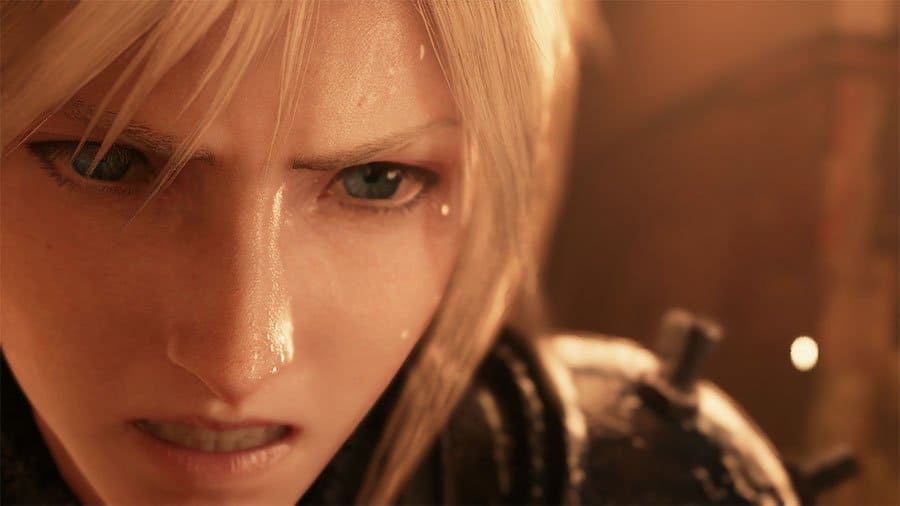
Sticking to just controlling Cloud will leave many experiencing a dull and lackluster combat system, but the game does attempt to encourage quick-switching between characters and utilizing different abilities. New weapons are limited in supply, but each carries with it a unique ability. Once mastered through the completion of challenging combat objectives, characters can learn the ability permanently, remaining even when weapons are switched. This builds the arsenal for each character, ability by ability – and that’s not including the Materia system.
And you better make sure you learn those abilities. Final Fantasy 7 Remake’s boss battles are some of the most intense I’ve experienced in any game that wasn’t developed by FromSoftware. So much of the game is clearly designed to be as accessible as possible. There are puzzles that even a child could complete in seconds, and the game prompts if you’re about to miss something permanently. A lot has gone into dumbing the experience down, and not often for the better.
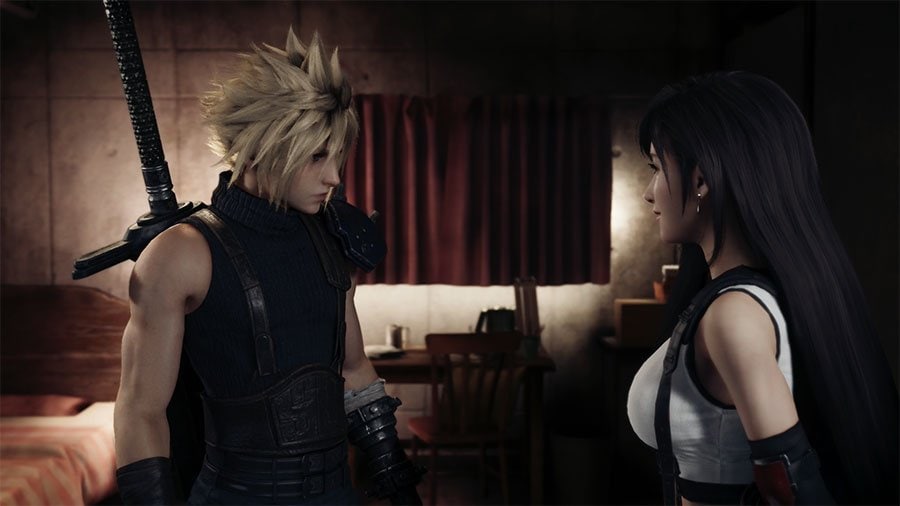
But then the combat comes in like an explosion, mixing battles that are over in seconds with 20 minute fights for survival. Each boss is unique in design and mechanics, ramping up the challenge as things progress. There is definitely room for frustration to set in, especially for those more interested in the story. Nevertheless, I found each battle to be more satisfying than the last. Its difficulty isn’t necessarily a problem, but it’s lack of conviction one way or another just well could be.
There is also the inclusion of one of Final Fantasy’s most loved features: Materia. Serving as its magic system, this mechanic gives players the opportunity to equip Materia in certain ways. Linking together different abilities leads to stronger abilities or even the addition of new effects. There are a lot of new Materia out there, so fans new and old will have a great time hunting all of them down and piecing them all together. Coupled with Summons, mini-games, and secrets, this title begins as a solid RPG but eventually opens up into a great Final Fantasy game.
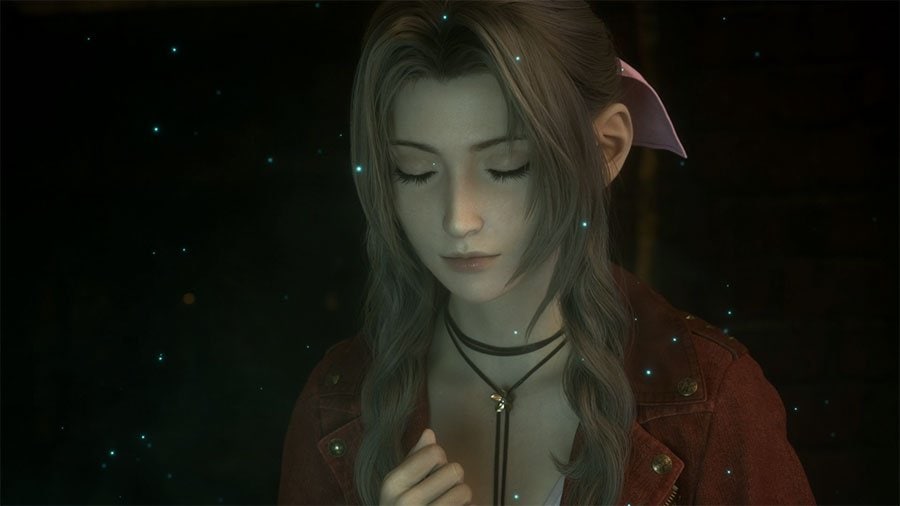
Final Fantasy 7 was where it all began for me. It was the first time I realized games could be more than simply fun. They could create an emotional experience alongside an exciting adventure, bridging various aspects of storytelling into a single package, immersing the player much in the same way as a good movie or book. As a young and impressionable youth, it opened my eyes in so many ways. Following the original adventures of Cloud and Avalanche is an experience that I will long treasure, plucking on each string of the emotional harp like a perfect orchestral piece. Final Fantasy 7 was never perfect; it had its flaws However, for me, the game marked the beginning of my love for the RPG genre – a love I still carry with me today.
Much like its predecessor, Final Fantasy 7 Remake is far from perfect. Its linear design and difficulty spikes may be off-putting for some, but stick through the rough bits and there’s another incredible story and wonderful world waiting.
[infobox style=’success’ static=’1′]This Final Fantasy 7 Remake review was done on the PlayStation 4. A 1st Class Edition was ordered and arrived early from the Square Enix Store.[/infobox][blogger ids=” cat=’honest-game-reviews’ orderby=’date’ order=’desc’ count=’4′ descr=’200′ readmore=’1′ rating=’1′ style=’image_large’ border=’0′ dir=’vertical’]